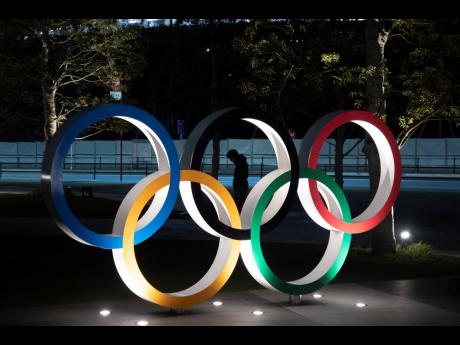The Games that never were - A look back at the ill-fated 1916, ‘40 and ‘44 Olympics
THE TOKYO Olympics have been postponed for a year to 2021 because of the coronavirus outbreak, but it’s worth remembering that the Games have been rocked by upheavals before.
Three other times, the Games were cancelled altogether because of World War I (1916) and World War II (1940 and 1944) – and in those latter two quadrennials, both the Summer and Winter Games were shelved.
A look at the Olympic Games that never were:
1916
Berlin was set to host the 1916 Summer Olympics (the Winter Games weren’t founded until 1924), beating bids from Alexandria, Amsterdam, Brussels, Budapest and Cleveland, according to GamesBids.com.
The German Empire even constructed a dazzling new facility to serve as the centrepiece of the games. Known as Deutsches Stadion, it opened well ahead of the Games in 1913.
After the First World War erupted in July 1914, preparations carried on for a while, since no one expected the hostilities to last another two years. But the horrific war lasted until 1918, eventually forcing the Olympics to be cancelled.
The Berlin stadium was demolished some two decades later and replaced by a new structure that would serve as the main stadium for the 1936 Summer Games, when the German capital finally got another chance to host. Of course, Adolf Hitler had risen to power by then, leaving those Games to be remembered ominously for promoting the Nazi regime that would eventually lead the world into an even more catastrophic war.
1940
In an era when the selected nation got the option of hosting both the Summer and Winter Games in the same year, Japan was a surprising choice as the first non-Western country to be awarded the Olympics. Tokyo was to be the summer host, with Sapporo getting the winter version.
Again, war got in the way.
Japan invaded China in 1937, prompting the Asian country to surrender its hosting duties the next year after some military leaders reportedly demanded that venues be constructed from wood because metals were needed for the war effort.
The International Olympic Committee hastily named Helsinki, runner-up in the initial bidding, to serve as the summer city, with the winter events going to 1928 host St Moritz, Switzerland. A dispute with Swiss organisers led to one more change, as the Winter Games were shifted a second time to Garmisch-Partenkirchen, the German host in 1936 alongside Berlin.
Of course, after World War II erupted in September 1939 with Germany’s invasion of Poland, the Olympics were cancelled altogether. Tokyo would eventually get a chance to host the Summer Games in 1964 – still the first Asian city to receive the honour – while Sapporo landed the 1972 Winter Games.
1944
Shortly before the outbreak of World War II, and after all that scrambling to find replacement hosts for 1940, the IOC awarded London the 1944 Summer Games in balloting that also included Athens, Budapest, Detroit, Helsinki, Lausanne, Montreal and Rome.
With England not a feasible host for the Winter Games, that event was awarded to Cortina d’Ampezzo, Italy.
The 1944 Olympics never had a chance. World War II dragged on until the following year.
London would then be awarded the 1948 Summer Games, the first in a dozen years and staged in austere conditions as the city continued to recover from the war. In 2012, the British capital became the first three-time host.
St Moritz hosted the Winter Games for a second time in 1948, while Cortina eventually got another shot with the 1956 Winter Olympics.

